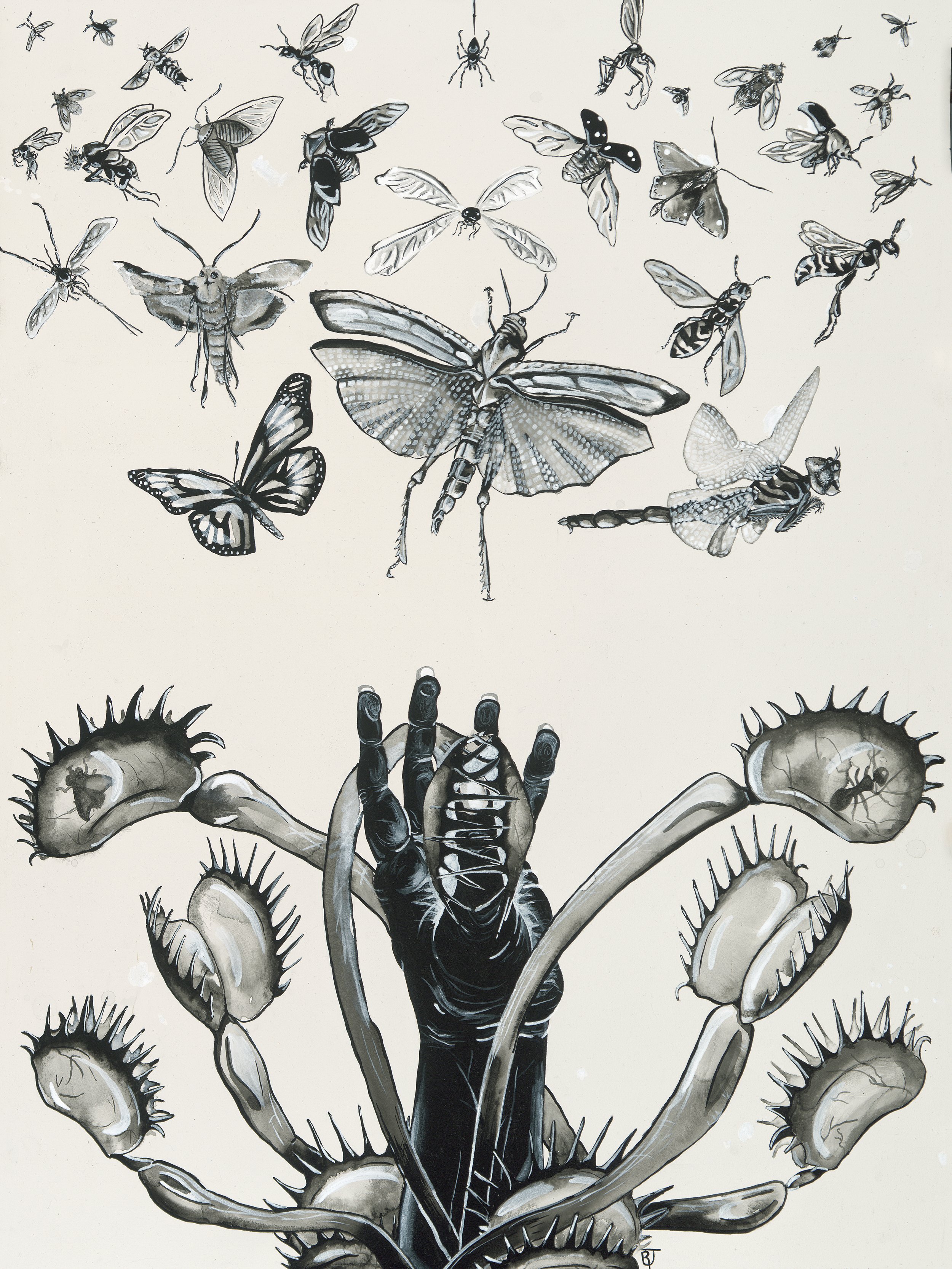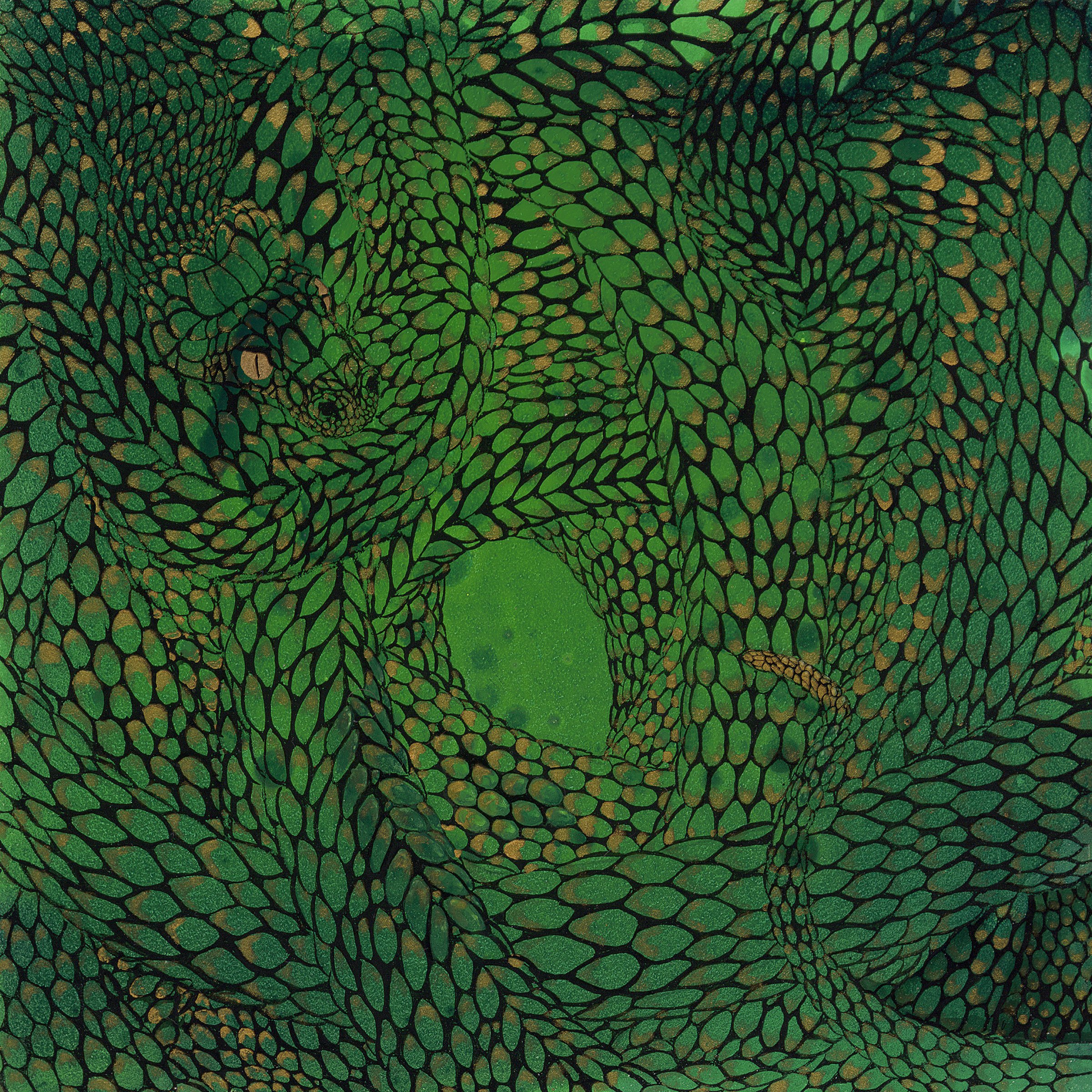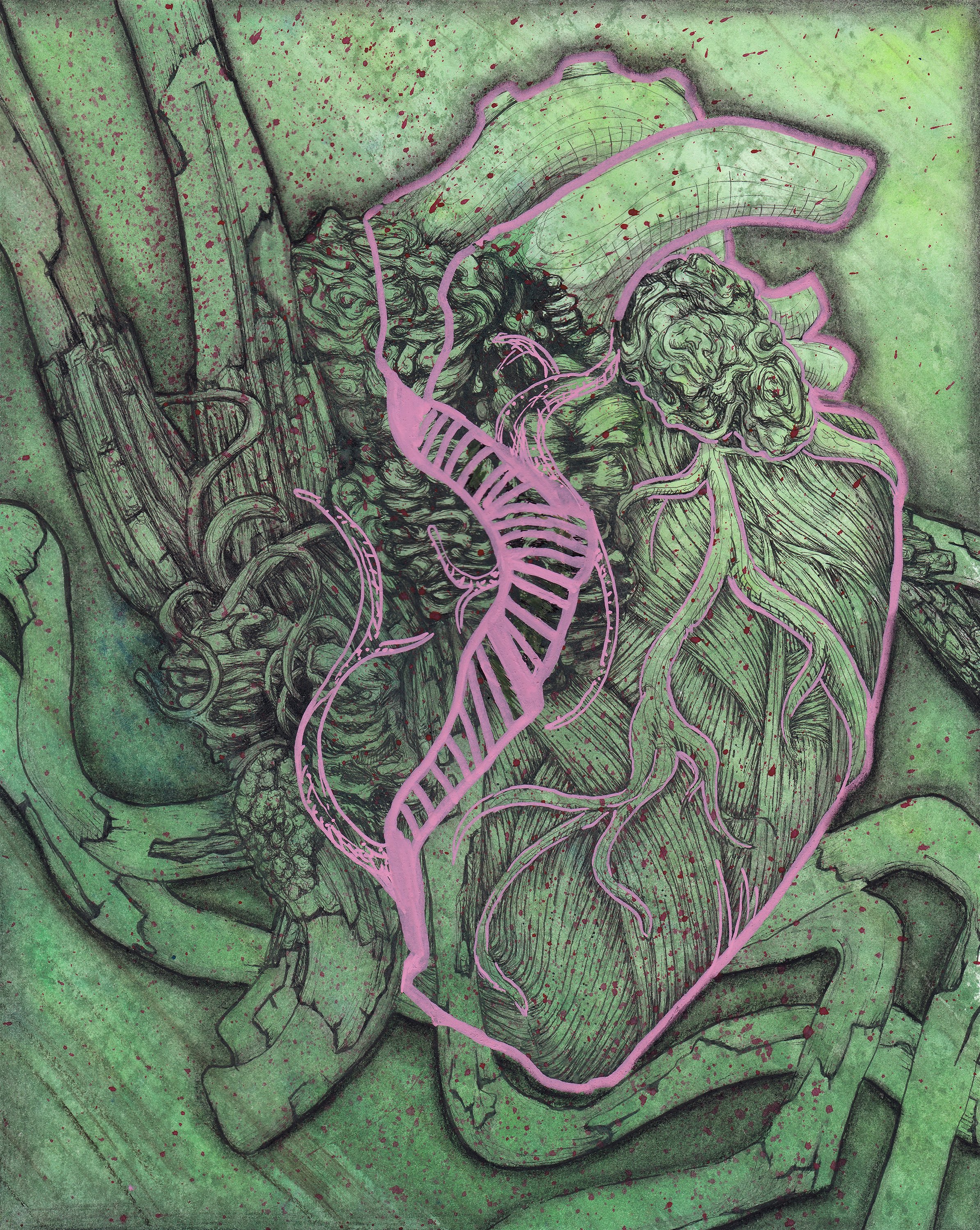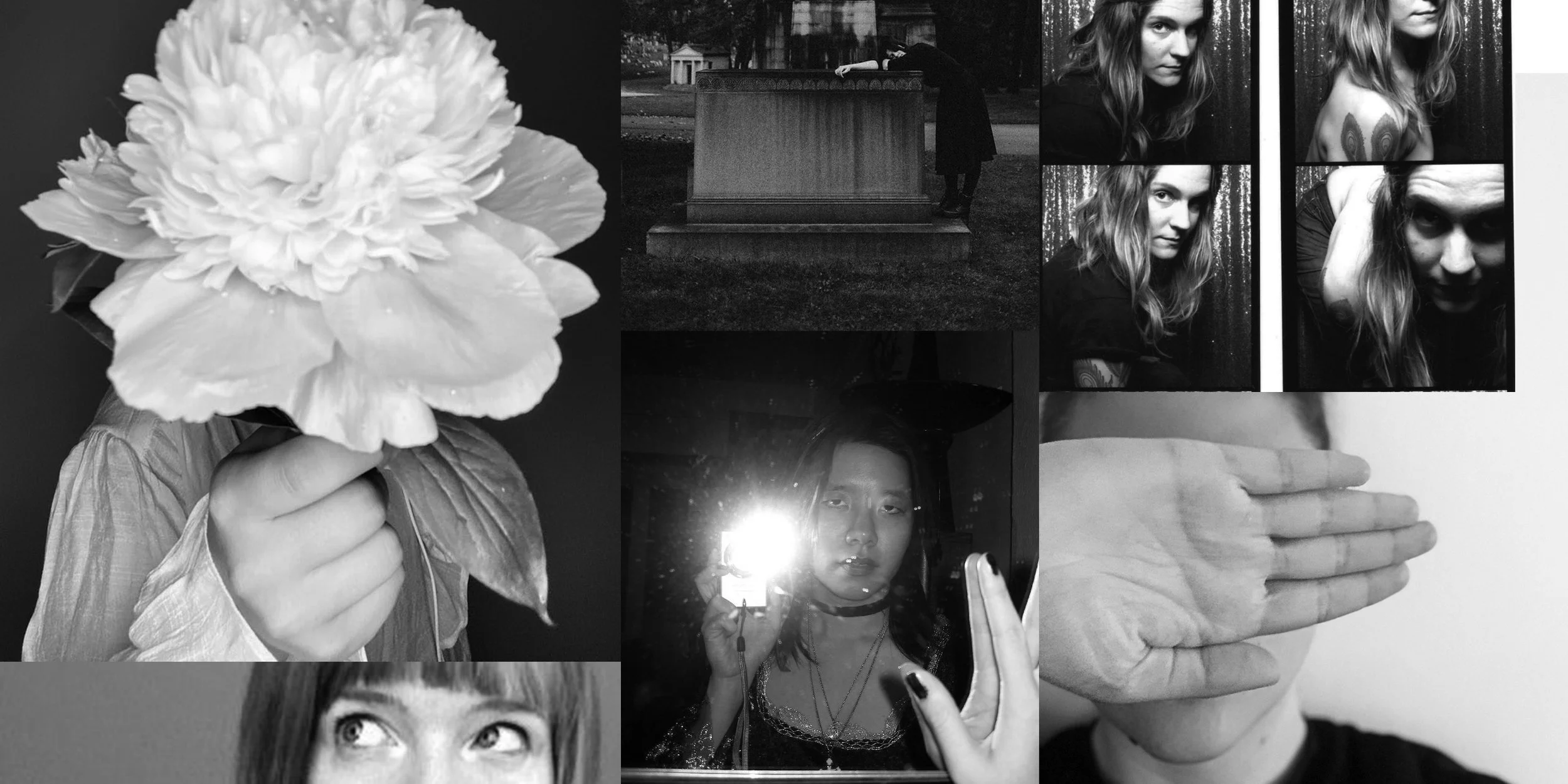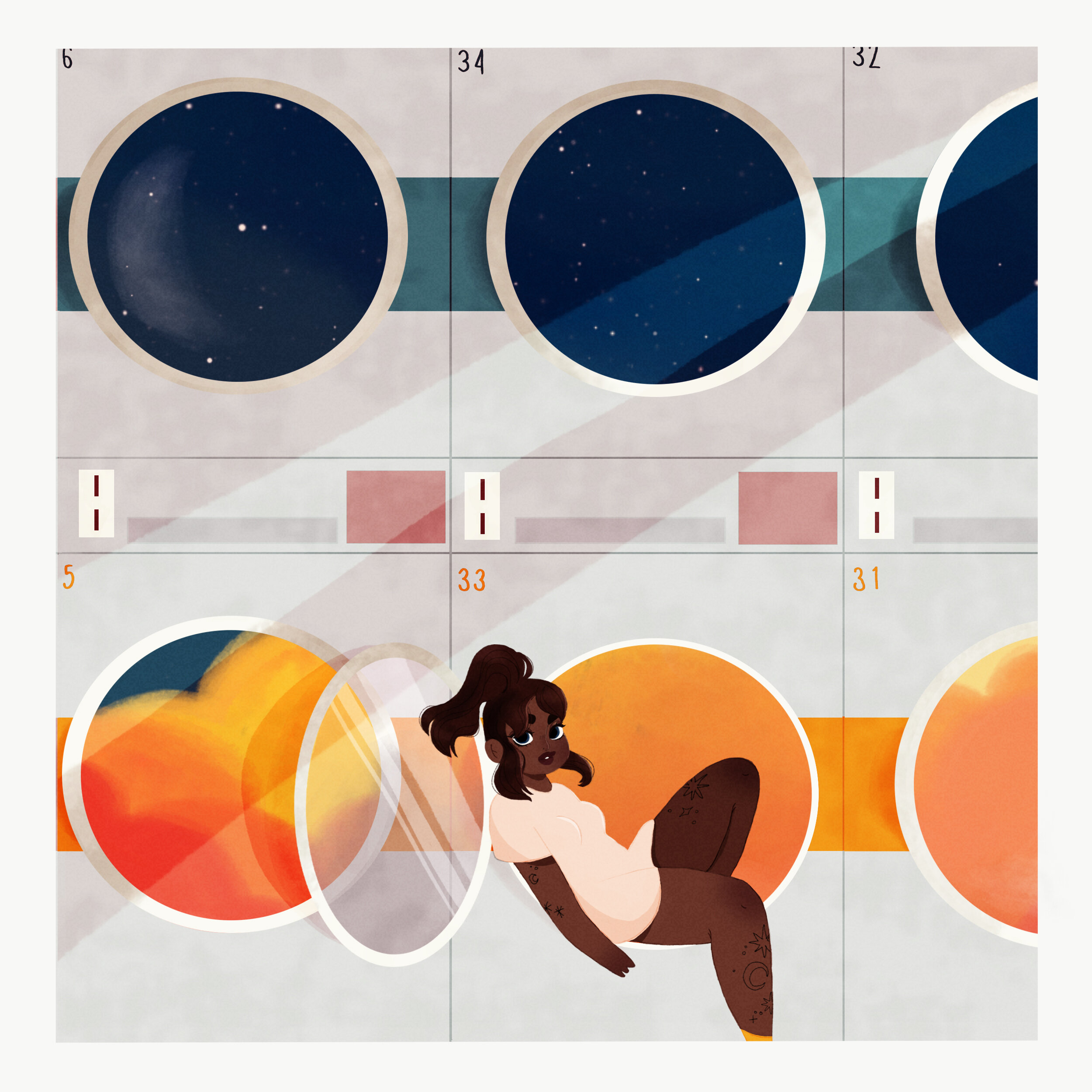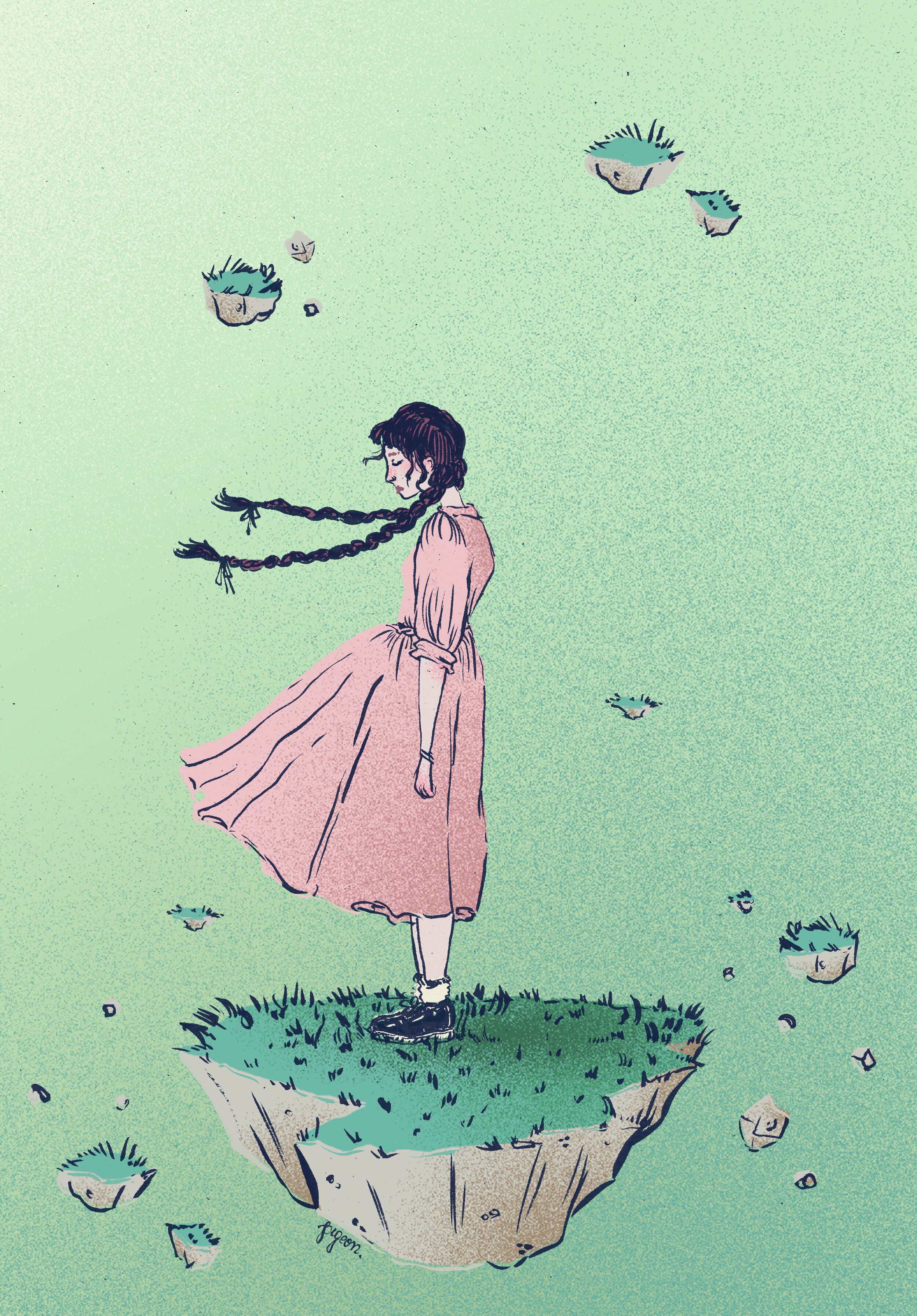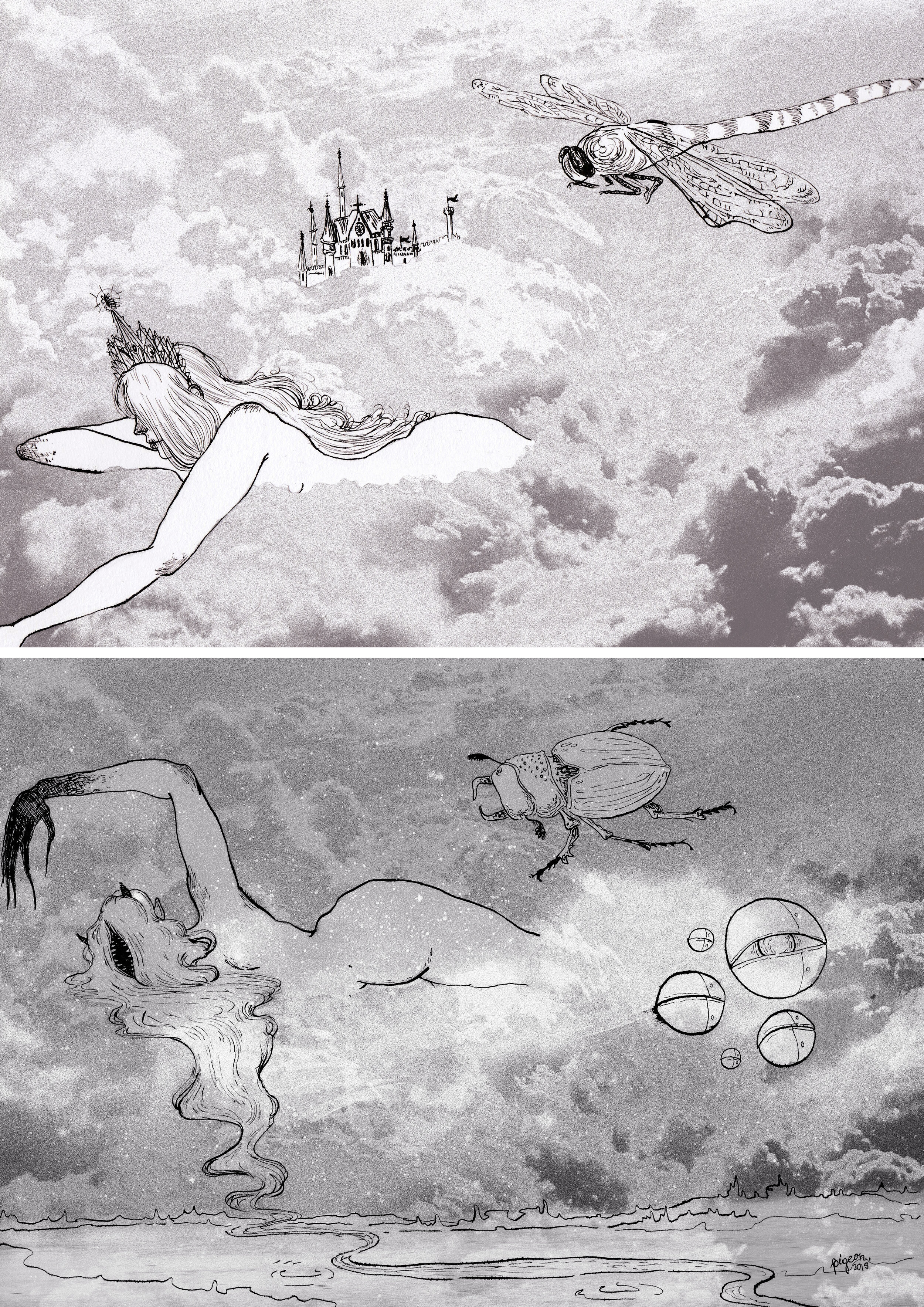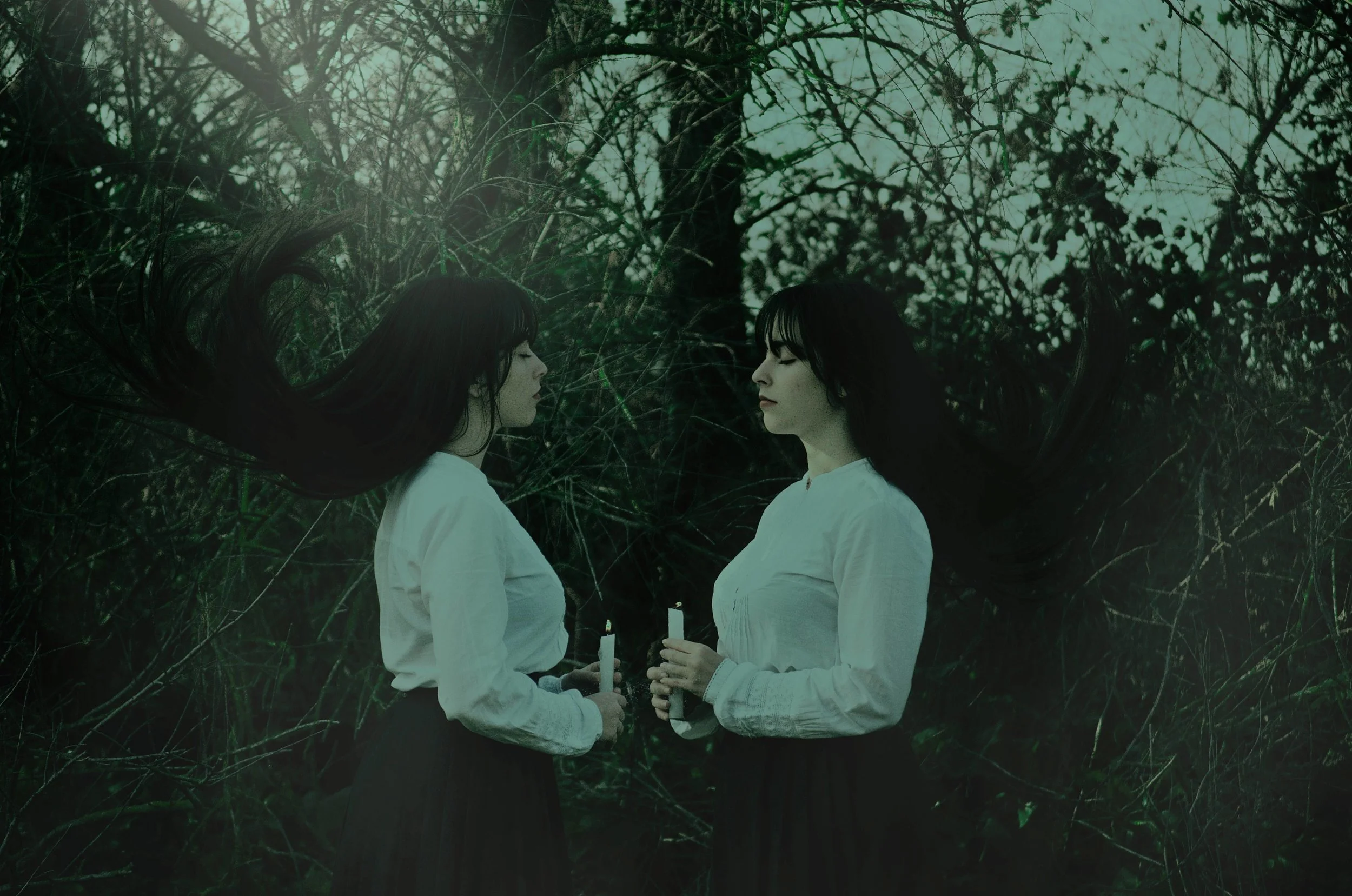It is a city made of doubles. There’s the old town and the new: divided by the bridge, divided by the river. The old town, with its ancient fortress, with its arrow slits and parapets, both time-softened and sharpened, like decaying fangs. Americans who come to visit always flock there first, of course. It is a castle to them, something that evokes their notions of the fairytale: kings and queens and princesses that go to sleep and wake up still-more beautiful and still-more wealthy.
Then, there’s the new town, which Americans don’t go to—they’ve been told, you shouldn’t go there; it is ugly, it is mean—with its own forms of fortresses, its blocks of concrete towers, concrete platforms, concrete hallways, concrete monuments, and concrete playgrounds. The children grow, surrounded by this concrete. Hard, coarse stone. Grinding away, simply by standing. Scraping hands, and knees, and boney little asses, which take no heed of the wear and tear. Surrounded by the ever-looming smell of it. When cold. When wet. Strong and sepulchral.
Not all the city’s doubles are distinct from one another. There’s the statues, for example: bronze-gold men on horse, in uniform. Some of them, old war heroes, like the famous warrior-poet who—as legend has it—simply vanished in the fog.
But many of them are new statues, simulacrums of the old, the men ambiguously aged and uniformed. Even the locals couldn’t tell you who these men might be, or what they did, which battles, or which wars they might have fought in.
❧
It is these statues that disturb him most, he thinks, as they ascend the sludgy hills, their maps unfolded, searching for the monument (that’s what his wife keeps calling it, though he’s explained, repeatedly, the locals see it as a space of memory). Which is to say, he’s read that locals see it as a space of memory. Which is to say, he saw that on some blog somewhere. Which is to say, he saw some argument about this terminology, and chose the side that seemed—to him—most interesting. The statues make it hard to navigate because it is impossible to tell them all apart. But they are obligated to look at them and try to decipher something in their shape, the gesture of each figure, that might indicate where they might be in space. Something about the gold-cloned faces with their pits of eyes. Something about the gold-cloned fists, upraised against the city’s winter tapestry. The river’s sickly green, the smog that stains the skyline with the shades of cheap tea, flea dirt, moldered linen lace.
What is the difference? Asks his wife. What is the difference between seeing something as a monument versus a space of memory?
One is a dead thing whereas one is still a living thing, he says, hoping she can’t tell from his tone that he is guessing.
❧
It is a space of strange things, sure enough. Starved dogs dart through the alleys. A lone donkey drags a frayed rope from his neck. Some poor old fool stands there, in the middle of the street, holding a hose mid-air, the water draining downhill, pointlessly.
And now, the man performs a ritual that he performs each time they enter foreign spaces of decay and poverty. He thinks not what it takes to live there, but what living there would take from him. He inventories every precious little loss:
No clean air (Cigarette clouds)
No sleeping in, rising when he likes (The howling of the strays)
No central heat, not on a budget (Plumes of wood smoke, burning wood smell)
No privacy (Withered women in their wilted floral dresses, peaking out of windows)
No pre-sex showers (No warm water, likely, probably that awful bone-white bar soap)
No midnight snacks (Probably no food he likes)
No midnight TV (Probably nothing in English)
No midnight walks (Probably get stabbed, or bitten by a dog)
He reassembles bits of daily life in his imagination. Foul new habits he would have. Decrepit pleasures he would take. The stupid ways he would adapt to stay alive.
He feels a shiver of disgust with himself.
His disgust excites him.
❧
Oh, there’s the monument! His wife points toward a concrete mound the shape of an explosion and the size of their apartment in The States. He hates that they have an apartment. Hates that they pay rent. Hates that he has some number on a street connected to his name.
It’s not a monument, remember? He reminds her.
She looks at the map, and gestures. It says monument. Right there.
It’s probably a mistranslation, he says, quickening his pace, forcing her to stop talking, to keep up with him.
At the top of the hill, they come into a clearing with a long strip of macadam, lined with an array of small, white cylinders. The cylinders are spaced in rows, like tombstones, and there’s something in the whole arrangement that evokes tomblike solemnity. This shape appeals to him. It reminds him of canopic jars Egyptian priests would use to store the dead body’s remains. He gets a flicker of a memory, visiting the museum as a young child, seeing the sarcophagus. He plays the word, sarcophagus, sarcophagus, sarcophagus, over and over in his mind, relives that strange excitement that he felt, working his way through lines of people to the lighted glass case where he knew he’d see the object of his journey, the sarcophagus. He weaves slowly among the small, white cylinders, touching each of them, musing, this one is the stomach, maybe this one is the liver, this one seems like it must be the lungs, this one is the intestines, this one is the brain, and this one is the heart. He kneels down, unzips his camera bag, and focuses a shot around just one white cylinder, leaving the rest a fading, ghostly gradation. Wonders if he should shift a little to the left, so it’s off-center, or perhaps a little to the right…
And then, his wife wanders into the frame, oblivious.
You’re in my shot, he tells her.
Oh! I’m sorry! She darts back out of his way.
But by the time he gets his bearings, he has lost his place, and he no longer feels the other-worldly pull of their canopic shape.
They look like small, white cylinders.
Just small, white cylinders.
He doesn’t know why he felt so compelled to photograph them.
❧
The small, white cylinders lead to a tapered concrete staircase, which leads to a giant black door, opening into the space of memory. Inside, the floor and walls are filled will blood-red beams of light, filtering through a dozen octagonal windows of stained glass. It is incredible. Like being on the inside of a wound, or on the inside of a broken bomb, recalling or foreshadowing the wound it renders, revealing the bomb itself as wound. The red light, streaming, seeping, like it’s swimming through the beams.
He tries to photograph this swimming light, positioning himself to take the shot. He has to crouch down, lean in low. He doesn’t use the zoom. He doesn’t like the zoom. It feels lazy. He can always tell when it’s been used in other photographs. He focuses intently on the textures swimming through the red light, til he knows the photograph will look just right, just like what he is seeing. He thinks, anyone who sees this photograph will feel what it means. To be here, in this moment. I am here.
❧
He is disrupted by a tapping on his shoulder. He looks up to see a hairy hand, a polyester shirt sleeve, which leads up into a polyester vest, which leads up to a patchy beard, which is attached onto a stern-faced man, who smells like sausage.
The man says something in his language that sounds angry, gesturing inscrutably, like he is catching something from the air.
But, I’m just shooting at the light, he says. One picture.
The man gestures like he’s grabbing something, tossing it aside.
One picture? Just the light? He says.
The man narrows his eyes and makes a rough sound, like a rattle in his throat. He makes an X shape with his hairy hands. X, X, X. Reaches out to seize the camera.
No, please don’t. He penitently backs away.
He feels strangely hurt. A child, being scolded for behaving wrong, engaging with some sacred object in the wrong way. He tucks his camera back into his bag, thinking, this is absurd. The least that he could do is try to speak in English.
His wife is wandering around the space of memory, gazing at little plaques with old historic photographs. Her lips are pursed in concentration, in that look she always gets when she’s interpreting something he doesn’t care about. It’s all performance, anyway, he thinks. The little plaques. What matters is the feeling of the space, the feeling of the light. What matters is that somehow, no one else around him ever cares about the real things. Paying attention. Noticing. And being in the moment. He stands behind her as she reads, his neck flushed hot, thinking about the man, replay-ing his insipid little X, X, X. His wife continues reading, nibbling her lower lip. She takes so goddamn long to read one simple paragraph. He thinks, she thinks that reading is her way of noticing, engaging, but it is distracting her from noticing; she hasn’t even paused to take in how the light moves, or to notice me, here, in the moment, standing right behind her, waiting right behind her. She is selfish.
He clears his throat. Let’s go.
She doesn’t turn around. She takes a little notebook from her bag. She scribbles something in it.
He tries to read what she is scribbling. He can’t make out, of course, what she is writing in that chicken scratch of hers.
It’s fascinating, she says—turning around, finally—how they have organized the monument into these stations. They’re the stages of two different uprisings, almost like stations of the cross, but each station combines the stories of two struggles…
He watches her chapped lips. They’re bleeding as she’s speaking. Flecks of skin get in her mouth. She doesn’t notice them, and swallows them. She’s speaking to him as though he is unaware of where he is, but she is eating, swallowing, digesting small bits of herself.
❧
By the time they emerge, it is the so-called golden hour. He is hungry. It is colder, and the moldered-linen landscape is now tinged with urine-yellow, and his wife is rambling about the things she’s read on all the little plaques, and he’s not listening.
They weave through alleys, under hanging shirts and sheets, all frozen to the clotheslines. Chipped-off bits of siding, flecks of paint, dusting the snow. They squeeze through an exceptionally dingy alley and emerge to—Fuck! He almost drops his camera bag. Two dogs are fucking. On a pile of garbage, nonetheless. On bits of chicken bones and broken beer bottles and rotten wads of filth. He even sees its…thing…all pink-red—gleaming in the urine-yellow light. He grips his wife’s hand, pulling her back with him, onto the main road.
He is unsettled by the dogs. He doesn’t know quite why. Something about the color of its…thing. The colors of the sunset.
Colors some would call romantic.
They are not romantic.
No, nothing about this place—this trip through Europe—is romantic.
❧
It is inevitable he would feel this disappointment, chasing as he has—his whole adult life—hoping to regain a certain moment from his childhood, a moment when he felt the moment for the first time, felt what it meant to be in the moment. He had been riding in his mother’s rusted hatchback. He had nodded off, watching the white lines of the highway, in the dark. The plan was to drive to some state he’d never been to, to attend the funeral of some old uncle he had never known. His dry-cleaned black suit and his mother’s dry-cleaned black dress were there, hanging on a window hook, and flapping in their sheaths of plastic, waiting to be worn, stiff and uncomfortable shells among a room of other stiff-lipped, uncomfortable, unfamiliar faces.
But, when he woke up, he discovered that a miracle had taken place. Opened his eyes to see warm light—a perfect gold-pink sunrise—lush trees, mountains, and a 24-hour diner where they pulled into the parking lot, reclined their seats, and stretched their legs.
Are we a long way from the funeral? He asked.
His mother laughed. We are indeed. We are a long way from the funeral.
She put a bill into his pocket, told him to go buy a Coke to share.
And they both shared it, passing back and forth.
❧
And now, a drop of rusty-smelling water smacks his brow.
He groans. I can’t believe this place…what we just saw…you know.
His wife smiles, meekly, and releases her hand from his grip.
Well, at least they were happy, she says.
Happy. What a stupid thing to say.
❧
They get their dinner from a market in the middle of the city: brown bread, tins of beans and vegetables with sauce, a bottle of red wine for her (he doesn’t drink—he never liked the taste of alcohol), and all this local chocolate she insists on buying. She checks them into some old bird’s nest of an inn with broken wooden shutters. Fake chalet shit decorates the front room. She takes a long time, fumbling her way throughout the check-in process, just so she can try to speak the local language.
They eat their stale bread, lukewarm beans, and half-frozen bits of chocolate on a small round table in their bedroom at the inn.
I love this chocolate, his wife gushes. Oh, the hints of rose.
It’s just okay, he says. It is important to make accurate assessments.
He watches his wife nibbling at this mediocre chocolate—masticating over it—and makes an accurate assessment.
Mouse-brown hair.
Small eyes.
Big nose.
Small mouth.
Big tits.
All of the small things and the big things, somehow all out of proportion.
❧
That night, he can’t sleep from some nervousness, some vague sensation that there’s something out there. He first registers this feeling as internal twitching, vibrating in his Achilles tendon, like a violin. And then, he registers this feeling as a plucking, quivered tension that reverberates up, through the full length of his gut. And then, he registers this feeling as a swelling in his heart. His blood grows thick, and loud, until his whole entire body pumps full with the feeling that there’s something out there, something out there, something that he should be doing, somewhere else that he should be, someone else that he should be with, someone else that he should become.
He keeps looking out through the window, like he’s checking something. What, he doesn’t know. He just sees darkness. Just smells rot. Some strange sulfuric fog, like bad eggs. Old, Sovi-et-era street lamps. Darkened windows. Lighted windows. Light, then dark. Lights flicking on and off.
No, there is something out there, something that he should be doing, other than this, other than what he is doing, here, what he has planned. He gets dressed. Splashes water on his face. Puts on his damp and dirty winter coat. Looks at his wife, asleep, content.
She looks so warm, under the downy rose-print comforter, that he almost decides to hang his coat back up, undress, and get back into to bed.
But then, she blinks, opens her eyes, and squints at him, there, in his coat.
What are you doing? Are you going out, this late?
He rubs his neck. I thought I’d go down and…you know…see what the freaks are up to.
What freaks? Asks his wife, like he’s insane.
He grits his teeth. I just can’t sleep, okay. He hates this, all these arguments about what he is doing, what he shouldn’t do. As though he doesn’t understand what is and isn’t normal. As though he would want to do what anyone thinks is the normal thing.
She sighs. Gets up from bed, and pulls her suitcase from the corner. Sifts through folds of beige, off-white. Holds up two nearly identical beige and off-white shirts.
This one, or this one? She says, blankly.
He thinks, neither.
He says, that one.
She says, just give me five minutes to get dressed.
❧
He instantly regrets allowing her to come with him.
Out on the street, she gestures to the lowlights haloing the castle in a misty sheen. How lovely! I’m so glad I came out with you!
They are tourists, now. He has no hope of finding what he’s looking for.
But still, that something in him pulses, pulls him, pulling her along—Where are we going? Slow down, please…you’re hurting me—down into narrow streets, from gold-lit, public lighting, into blocks of reddish, violet neon, reddish, violet curtains on the windows.
❧
They duck into the reddest little nook, following the directives of a series of red arrows, pointing down-down-down a set of concrete steps, then this-way-this-way through a metal gate, then right-left-right along a very dark and narrow hall. The odor of a thrift store—or a long-neglected closet—permeates the darkness: mildewed wool and ancient velvet.
Inside, they find about a dozen booths with cushioned seats, red curtains pulled aside that can—presumably—be closed for privacy. The red booths face a wooden platform—too small to be called a stage—about the size and shape of someone’s bare-stripped mattress. A halogen lamp hums and crackles in each corner of the platform, casting shadows on a brass pole in the center. But there is no one at the pole, no music playing, no sound but the humming of the lights, and no one there but them.
His wife huddles into her coat. There is a singular chill to this room, the kind of cellar-cold that comes from stillness.
What is this room supposed to be? Some kind of strip club? She whispers into his shoulder.
I don’t know, he says. I think so.
He realizes that his feeling of unsureness isn’t rooted in the purpose of the room—that much seems clear—but in the question of time: whether this is still an active, living strip club, or a space that hasn’t been used for a very long while.
This doesn’t feel right, his wife tugs at his sleeve. I feel like we must have made a mistake, like we aren’t supposed to be here.
But then—as if on cue—a jolt triggers an overhead light, which shines down a blood-red beam directly on the pole. They hear a scratching static, like someone upstairs has just turned on the speaker, and a music track begins to play. Generic, atmospheric techno fills the room, along with flicking, glitchy sounds, like different stations playing out of tune. A violin plays—barely audible—beneath the main track, like a gentle weeping that is trying to be heard.
❧
He sees a movement at the far edge of the room. A pale hand—and then, a bare arm—rustles through some dark partition. A woman steps out from the dark partition: glossy waves of hair, wearing a long, shimmering iridescent gown. She gleams deep burgundy—at first, as she emerges—then, a brighter, ruby-red as she moves closer, past the small wood platform and the lamps—and then, an even brighter, copper-red, as she moves closer still, holding a long, white pillar candle between both her pale hands. There’s something ghostly in her movements—almost holographic—in the swishing of her skirt, the shifting colors of her dress. He stares hard, through the dim light, eyes trained on her every step, and gesture, with a strange dread that she’ll vanish if he dares to blink. He feels a tingling vibration in his veins, a kind of charge, a warmth that buzzes through his body, humming, crackling in conversation with the halogens. Exciting. And uncomfortable. Like the sensation of limbs long dormant, waking up.
She moves from booth to booth, using the long, white pillar candle, lighting one small candle at each table in the room. She doesn’t look up from her task until she’s lit the final candle. Then, she smiles. Gestures for them to sit down, inside the last booth.
They sit where she has beckoned them to sit.
She nods. Her eyes are golden-green. Good evening, sir and madame. You may call me Kitya.
Her English is bell-clear. Even her accent is bell-clear, and somehow sounds put-on for them, affected for their benefit.
The show will begin shortly. For now, would you care for some refreshments?
Could I have a glass of red wine? His wife asks her, searchingly.
Certainly. And for you, sir?
Just a glass of still water, he says.
Still water, as you wish. I will return. I hope you will enjoy the show.
❧
Kitya glides back across the room and steps back through the dark partition. He can hear her voice, murmuring in her language. He can hear her say, Americans. He then hears several other voices murmuring responsively, Americans, Americans. He gets a chill, hearing this designation, realizing he has never heard himself referred to as American.
He is an outsider in this space.
They feel threatened by him in this space.
The specter of this foreign threat excites him.
❧
A new, generic techno track begins to play, and Kitya reappears, now with a red lace shawl draped down her back. She saunters to the center of the platform, making wavy movements with her arms, shaking the shawl’s fringe in a way that emphasizes just how pale, still, and marble-cold her skin looks in the lowlight, set against the soft, shivering gleams of long dark hair.
She grips the brass pole with one hand, stroking up and down, circling around the pole, like she is contemplating what she will do next.
She turns her back toward their booth, slowly unzips her dress, and shrugs it off her shoulders, shakes it down her stomach, down her hips, in slow, deliberate rotations.
Turns over her shoulder. Winks.
She winked at me, he grins.
His wife says, no. I think she winked at me.
Then, with a twitch-flick of her ass, she sheds the dress. It crumples to the floor, and she steps out, like Venus from a shell. Beneath her dress, she wears a weirdly trashy fishnet bra, a matching fishnet thong. Red patent-leather heels topped with little hearts. She sways her body back and forth across the platform, which is so small that her foreword motions blend into her backward bends, so she is never fully moving toward them or away from them, her muscles shifting and contracting in mysterious internal rhythms.
Kitya rolls the red lace scarf along her arms—twisting her hands—and casts it, like she’s feeding it into the crumpled dress. She does a kind of beckoning dance with her fingers: the en-chantress of some ghost snake that they cannot see, but feel, coiling in their guts.
He stares into the white bulbs of her tits. They stretch the fishnet taut, those tiny, tiny, tiny little red triangles.
Kitya has perfect breasts, he breathes.
His wife lets out a terse laugh, like a hiss. They’re fake.
No way, he says.
Yes way. Look closer.
He looks as closely as he can—oh, if he only were a camera, oh, he wouldn’t even mind the zoom lens, right now—as she reaches back behind her neck, unties the little fishnet strings, and shimmies loose the few remaining red threads from her flesh.
❧
Kitya returns, clad in an iridescent red robe that looks like some transmutation of the red dress she was wearing. She serves his wife her glass of wine, and passes him his glass of water. It is warm, right in the center, where she touched it. And when he takes the glass, and feels this ring of warmth, he gets that same shiver he felt before, that same exhilarating and uncomfortable charge, coursing inside his stomach, in his liver, in his lungs, in his intestines, in his brain, and in his heart.
Did you enjoy the show? Kitya asks them, politely.
Yes, very much, he says.
Yes, very much, echoes his wife, in her quiet mouse voice.
That is good. She claps her hands. Her breasts shiver beneath the robe. Now, please excuse me. There is much I must attend to.
His wife sips at her wine. She makes a pained look, watching Kitya walk away.
He thinks, jealous.
The red wine stains his wife’s chapped lips.
How is your wine? He asks.
It’s good. She sips, and sighs. Surprisingly good, actually. It is really very good.
❧
The next performer then emerges from the dark partition. This one is not nearly as enchanting as their hostess. She is not fat, or even overweight, but somehow, she has all these extra folds of yellowish and dimpled skin. Her awkward, stiff dance draws attention to her irritated elbows, to her rough knees, to her sagging, asymmetrical tits. All of her skin—he thinks—is like the inedible flesh you’d carve off from a chicken, all the bits you’d scrape aside, and throw away.
The next one after that is even worse. Her body—in and of itself—is actually decent. Firm, flat stomach. Slender legs. But she is covered head to toe in these repulsive, wiry follicles, like male chest hair, or some kind of insect. It’s like a mad parade, each dancer—not exactly uglier—but more unsettling, disturbing than the one before her. One dancer, ghastly in her mis-proportions: starved-thin frame above the waist, gargantuan and jiggling below. There is one dancer who is almost beautiful—an absolutely perfect apple-ass, a lovely pear-shaped pair of tits—but when she turns into the light, he sees her face is covered in these awful cysts and sores, encrusted in some kind of ooze.
He thinks of Kitya—elegant, demure—a pale figure moving in the midst of them, doing whatever they do on the other side of that partition. Eating the same stale bread and sausages. Sharing the same communal makeup as the woman with the sores. He shared all he had with his mother, as a child. They were poor. His mother always said that—We can’t go there because we are poor. We can’t do that today because we’re poor. We can’t buy this thing or have that thing that you want because we’re poor.
I hope she’s not contagious, he whispers.
His wife looks at him, blankly. Who’s contagious?
He traces an invisible circle in the air, around the platform. Maybe they have something wrong with them. Something they don’t have treatment for, in this part of the world.
His wife’s mouth hangs half-open for a moment—indecisive, he thinks—eyes wide—he thinks. Unobservant. Leaving it to me, to summarize what we are seeing, what is right in front of her.
What are you talking about? She says. They’re just ordinary women.
❧
His wife orders a second glass of wine. Her teeth and lips, the color of a bruise, against the off-white of her blouse. When Kitya comes back, he requests the check to keep his wife from ordering another glass of wine. She’s clearly had too many, as it is. She smiles at Kitya with her stained teeth. Kitya smiles—to be hospitable—her clean and crisply white-toothed, red-lipped smile.
He turns away—embarrassed for his wife—and contemplates the curtains of the booth.
Do you do private dances? Would you do a private dance?
I can do better, Kitya says. A lesbian show, for you, with my friend. She points to him and his wife. One for each.
Oh, I would like that, says his wife.
He grimaces, imagining which dancer is her friend. The chicken fat. The insect hair. The jello thighs. The leper flesh.
I just want you, he says.
Kitya nods. Very well, then. I will add the private dance onto your tab.
❧
Kitya moves back onto her side of the partition, and he thinks about the almanacs his mother kept, her little basement library of used books, out of date, even then, with their world maps, how he would look at them, and trace the distance with his finger, breathing in the scent of cellar cold, the scent of ancient glue, decaying binder fabric—shivering, it is so cold, here, in this club—tracing the space between America, and there, and there, the longitudes and latitudes of other spaces—he can hear them whispering, again, about him, in their language—he could see the space be-tween them, see the measurement of distance—he can hear Kitya’s voice, laughing—he would think, it’s just a measurement of distance, just a measurement of money, that would get me here to there, to this place and to that—he hears the glasses clinking, fabric rustling—he’d point, this one, to this one, like the simple act of pointing would do something—how his mother used to point to photographs in photo albums, pictures of him as a child—Here? Or here?—he hears the dark partition parting—Were you happy, at this point, here, in this moment? Were you happy? Here, or here, or here, or here?—his wife’s voice, wine breath in his ear, intoning, Will this make you happy? If we go here? If we do this? If we do this, will it make you happy?
❧
Kitya steps into their booth.
She pulls the curtains, triggering a rush of dust.
She closes them, and ties a cord to seal them shut.
She does her little snaking dance, sliding one sleeve of her robe, down, and down, and then, the other side, until she’s inches from them, in her little fishnet bra, her thong, and he can see the pink tips of her nipples, pink lips peaking through the mesh, and he can see her peaking over at his wife, even as she moves closer, closer toward him.
Don’t look at her, he tells here. Look at me.
She locks her eyes with his. Green eyes. Gold-green. A gold light, gleaming through the iris of her eye. A fog light, deep within the murk of something stagnant. He looks hard, into that golden gleaming, searching through that murk. Something inside her gaze, something that must be claimed, he thinks, I only need to look closely enough, look long enough, look hard enough, look deeply enough, to see through enough, to see clearly enough, to see through this moment for all its murk, and to see through this murk, to see the moment, to take hold of it, take hold, to take, to take…
❧
And, suddenly, he’s in the middle of an overwhelming brightness.
He winces.
He holds his hands up to his face, to shield his eyes.
His palms are soft, he realizes.
And his hands are…small.
They’re smaller than they were, a moment ago.
The hands of a child.
And…he has dark sleeves, now.
Black sleeves.
White cuffs, beneath them.
He is dressed up, in a black suit.
Funeral suit.
For whose funeral?
And there are…walls around him.
Concrete walls.
He feels the hard, rough surface with his small hands.
He is in…must be in…some kind of hallway.
He paws his way along the walls, cautiously stepping forward, one foot at a time.
His eyes begin to adjust to the bright light, coming from the walls, as though from sconce lamps…but there aren’t any bulbs, or fixtures. They’re just orbs of bright, amorphous light.
The hall starts wide, much like the hallway of a museum, or a gallery, but gradually gets narrower, narrower, and narrower, until he has to duck down, then get down on all fours, crawling on his hands and knees. Rough concrete tunnel, scraping at his soft skin.
After some time—he has no notion of how much time—he observes some kind of opening, a window in the wall.
He peers through. Sees himself, his mother, and some neighbor kid he never really liked, who always wanted to be friends with him. He sees his mother serving mini cereal boxes, the kind that you would cut through, with a pair of scissors, pour the milk right into. He is smiling, but he doesn’t seem to notice that the neighbor kid is saying something, trying to get his attention. He sees another window. Sees himself—a little older—hands clasped in his lap, thanking his mother for some camera toy she gave him on his birthday. He remembers that. The guilt, knowing he couldn’t say, I need a real camera, and I have no use for this.
He moves on like this, for a while, looking through these windows into all these old, almost forgotten moments from his childhood, until…he looks through, and he doesn’t see himself. He sees an unfamiliar young girl with dark hair, wearing a gray dress. She is carrying a baby in her arms, trying to entertain the baby, singing in a language that he doesn’t understand. And, in the next window, the same girl, now a little older, drying off another child’s wet hair, putting newspaper in wet shoes. In the next window, she’s crying. She has cut her finger, chopping vegetables. And in the next window, she’s laughing, and…
He stops. He feels a sudden chill of recognition. That is Kitya’s laughter. That little girl, laughing, must be Kitya.
He squints into the tunnel, trying to decipher what he’s crawling toward. He sees…he thinks he sees…it looks like maybe, if he goes a little farther, it will start to open up. Yes, he is seeing what he thinks he sees. A red light, in the distance.
He sees the red light—stronger, brighter—hears the glitchy techno—closer, and closer—he even hears the softly weeping violin, beneath it—louder, louder, louder—ringing, now, not from a distance, wailing out, shrieking, vibrating everything around him.
❧
Suddenly, he realizes he can stand.
He can not only stand, but walk around.
He’s in the space of memory.
The red light beams down, from the stained glass windows.
Beams a kind of diagonal pointing pathway.
Cross the concrete floor.
To reach the giant black door.
He walks toward the giant black door.
Pauses for a moment.
Presses his ear to it.
He hears nothing.
Then…he hears that now familiar laughter.
Filtering through—barely—from the other side.
He takes a deep breath in.
He reaches out.
Opens the door.
❧
He gets a dark whiff of that moldered velvet smell, coupled with rose and musk perfume oil, and immediately knows: he’s back inside the club. He sees his wife, sipping another glass of wine—of course—and laughing that particular unhinged laugh she gets when she’s drunk. Her body bobs around a little, with the force of her laugh, and with her disoriented drunkenness, no doubt. He sees her reach out toward him, feels her brush his cheek with unusual tenderness in her touch, an unusual desire in her eyes.
He sees what looks like it should be his own arm reaching out toward her, but it’s not his arm. It is a pale feminine arm in an iridescent red robe. And he hears that other laughter—Kitya’s laughter—ringing where it shouldn’t be: inside his own head.
As though the laugh is ringing through his body.
As though the laugh is coming out of him.
He feels himself—herself—kissing his wife. He feels—she feels—the raw dry skin of her lips. He—she tastes the acid of the wine, still on her tongue. It tastes quite different with this newly blended mouth. A different chemistry, a not entirely unpleasant one. He feels Kitya feeling under-neath his wife’s off-white blouse—notices, that neutral shade somehow brings out the amber of her eyes, the dark flush of her cheeks—her breasts are slick and fevered underneath these blended hands, deliciously familiar and—now—unfamiliar. And he can feel Kitya’s own breath, quickening, her own flesh, flushing. And he tastes this breath. A faint tang of tomato soup and pears. And he is filled with that electric warmth he felt, just looking at her. With the waking of new parts, new forms, exciting new sensations.
But then, Kitya turns their head toward the corner of the room, where he was sitting.
Where he is still sitting.
Where his body is still sitting.
His frame sits upright.
His arms and hands lay stiffly at his sides.
Hands on his thighs, almost as though they’re frozen, there.
His neck bends, though, unnaturally.
Head drooped down, like it’s too heavy for his wilted spine.
Bent over so he cannot see his face.
Kitya keeps feeling underneath his wife’s blouse with one hand, and—with the other—gently sweeps his bangs back, tilts his chin up, and reveals his slack-jawed face—a drizzle down his lips—his eyes wide open, dead-wide.
Her laugh rings bell-clear. Haha. Bright-eyed and bushy-tailed.
His wife, quite naturally, doesn’t even look, or listen. She just keeps on moaning, squirming. Sucks at Kitya’s nipples.
Kitya strokes her hair with one hand. Pushes at his body, with the other.
Go, now, Kitya whispers. Go. Go on.
He sees his body rise up, slowly, stiffly.
With the same, utterly empty look behind its eyes.
Nothing behind its eyes.
He watches as his body shifts toward the curtain.
Watches—helplessly—as Kitya opens it, then closes it behind him.

